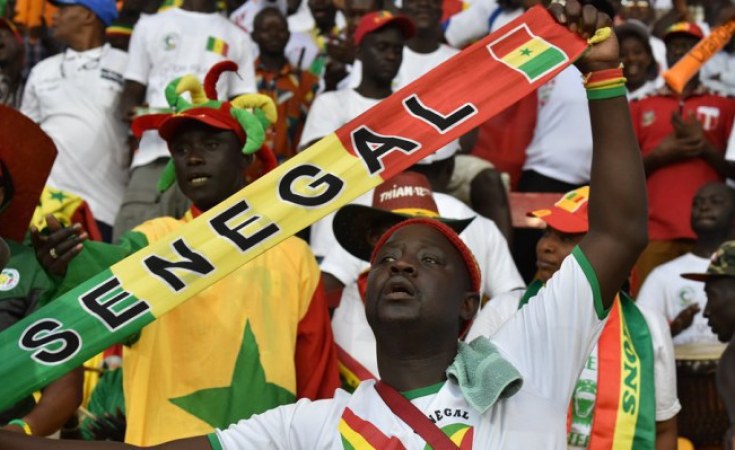The fate of perennial underachievers Senegal, the return of Egypt and the shock qualification of tiny Guinea-Bissau are just some of the major talking points as we prepare for the start of the 2017 African Nations Cup finals to be played in Gabon from Saturday.
It looks an exciting and wide-open field for the three-week continental championship that will be played across four venues in the oil-rich central African state ahead of a February 5 final in Libreville.
No less than 11 of the 16 competing nations can have real hopes of claiming the trophy, but there is also the potential for a surprise victor to emerge, just as Zambia did in 2012 when they stunned Ivory Coast in the decider at the same Stade de l'Amitié in the Gabonese capital.
The Ivorians are now the defending champions, but no longer the favourites after a period in which they have lost many of their talismanic stars – not least the master Didier Drogba and sublime skills of Yaya Toure.
Instead Senegal have emerged as Africa's leading nation going into the finals, but go into the tournament wary of many past failures where they have been heavily tipped to succeed, but fallen well short of their expected performance.
It makes for a fascinating festival of football with evenly first-round groups that are difficult to predict, with only the top two sides advancing to the quarterfinals.
Hosts Gabon open their Group A campaign against Guinea-Bissau in Libreville on Saturday with the latter appearing at a major finals for the first time.
They have long been tagged as minnows, but after tapping into their Lusophone connections in Europe now have a squad that consists of not a single player plying their trade at home.
They stormed through the qualifiers, earning their place at the finals with a game to spare, and although this will be a step up in quality for the west African side, they will fancy their chances of an upset.
Gabon will once again look to their star forward Pierre-Emerick Aubameyang to get them deep into the tournament, but have a number of other rising stars eager to impress, such as Juventus midfielder Mario Lemina.
The other two nations in the pool will both be eyeing quarterfinal spots. Cameroon have been seriously depleted by a host of withdrawals from their squad, another headache for Belgian coach Hugo Broos who is already under fire after a mediocre last 12 months.
Burkina Faso were finalists in 2013 but lost to Nigeria and have a team packed with ability, even if they can be defensively deficient at times.
Group B has taken on the obligatory 'Group of Death' moniker for this year, with Algeria, Tunisia and Senegal all among the favourites for the title. Zimbabwe are the fourth team in the pool, making a return to the continental showpiece for the first time since 2006.
The Warriors have a forward line to match any side in the competition, but defensively will likely struggle against three very strong teams.
Like Senegal, Algeria have flattered to deceive at times but pack enough of a punch to go all the way, while Tunisia bring their organisation and great technical ability to the tournament.
Mind you, Group C looks no less ominous for its competitors, and reunites Morocco coach Herve Renard with the side he led to the 2015 title, Ivory Coast.
Both are in with a great shot at winning this year, as are DR Congo, who have made good strides in the past five or six years, having finally been freed of the ravages of civil war.
The Congolese will miss injured Everton winger Yannick Bolasie, but have a number of other exciting talents.
Togo are the other side in the pool, with veteran forward Emmanuel Adebayor in the squad despite being clubless since the end of the last European season. This will surely be his final shot at glory and with coach Claude Le Roy to take part in a record ninth finals, what a story it would be if they were successful.
The Frenchman has only failed to make the quarterfinals in one of his previous eight tournaments.
As if that pool was difficult enough to call, you then have Group D, no less of a puzzle to work through.
Ghana coach Avram Grant is under pressure to deliver the title after a poor start to the 2018 FIFA World Cup qualifiers saw the Black Stars take just one point from the first six available.
He has never quite endeared himself to Ghana fans and an early exit could well spell the end of his stay with the team.
Egypt are back at the continental showpiece for the first time since they lifted the trophy in 2010, a third victory in a row to extend their record number of wins to seven.
The country’s football was deeply affected by the Arab Spring uprising and Port Said Stadium tragedy in 2012 in which 74 people, all but two fans of Al Ahly, were killed.
It has just started to normalise and that has shown in the improved performance of the national team, which certainly has enough quality to go all the way.
Mali finished third at the 2012 and 2013 Nations Cup tournaments and should be considered contenders, while Uganda, appearing at the finals for the first time since 1978, are the pool minnows, but have beaten Nigeria and Slovakia in recent times to highlight their potential.


